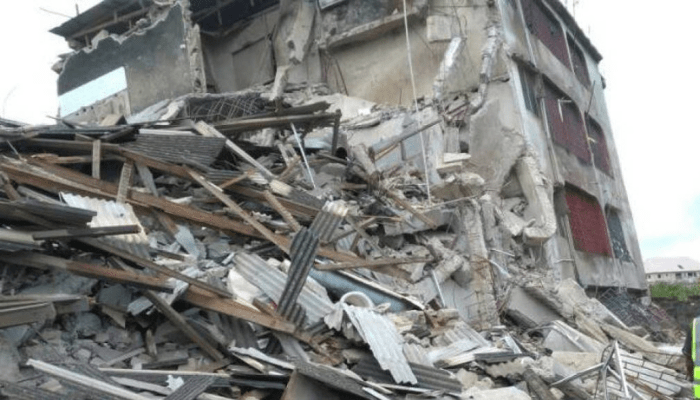In Nigeria’s most densely populated urban center, Lagos, a disturbing trend continues to define the skyline, buildings crumbling under their own weight, often claiming lives and livelihoods in the process.
This unsettling pattern has transformed what should be a beacon of urban development into a graveyard of failed structures, with greed and regulatory negligence emerging as the dual culprits.
Though Lagos occupies just 0.4 percent of Nigeria’s land mass, it houses over 20 million people, making its real estate market both lucrative and under immense pressure. The explosive demand for housing has become a goldmine for developers, some of whom prioritize profit over principles. For them, speed and savings outweigh safety, and the consequences are deadly.
“Many developers now treat approvals as mere formalities,” said an urban planner familiar with high-rise projects in Lagos. “The moment they secure land, it becomes a race to the highest possible return, regardless of the design limitations or safety protocols.”
The collapse of a 21-storey building in Ikoyi in 2021, which claimed more than 50 lives including that of the developer, was a stark reminder of what’s at stake. Investigations later revealed that the building had approval for just 15 floors. That tragedy, among the deadliest in recent history, should have signaled a turning point. But it didn’t.
Only recently, a similar disaster occurred in the Ojodu-Berger area where a three-storey structure undergoing illegal modifications to add another floor gave way, killing five. It mirrored the same reckless ambition, build more, faster, and cheaper, while betting against regulatory enforcement.

“It’s not just the loss of life that concerns us,” noted Tayo Odunsi, CEO of Northcourt Real Estate. “Each collapse rattles investor confidence, disrupts financing, and increases insurance premiums. Developers who play by the rules now face additional scrutiny due to the actions of a few bad actors.”
From 2011 to 2019, over 80 buildings were reported to have collapsed in Nigeria. More than three-quarters of those incidents happened in Lagos. With such a grim statistic, it’s evident that this isn’t a series of isolated incidents but a systemic failure.
Industry experts say this failure is rooted in poor regulatory enforcement, lack of professional accountability, and a weak culture of compliance. Despite existing frameworks, oversight remains inconsistent. In some cases, approval officers are compromised; in others, buildings rise with no approvals at all.
Professional bodies like COREN, NICE, and REDAN have been called upon to take more decisive action. Analysts argue that sanctions alone aren’t enough — there must be continuous monitoring and public education campaigns on the importance of hiring certified professionals.
“It’s high time we restructured how we approach construction in this country,” said Olabisi Demola-Alade, a former chair of the Nigerian Institution of Estate Surveyors and Valuers (NIESV). “Our cities should not become tombstones of avoidable mistakes.”
Unless Nigeria addresses the greed that drives non-compliance and the regulatory weaknesses that enable it, the built environment will remain a dangerous gamble not just for residents but also for investors with stakes in real estate’s potential.




